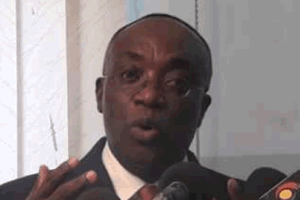Ghana to regulate carbon emissions in vehicles

The Government of Ghana is taking steps to ensure the implementation of standards to regulate carbon emission in vehicles operating in the country.
This is in line with efforts to uphold Act 569 to the letter, a law, which seeks to regulate the use of vehicles and promote good driving standards in the country.
The Act outlaws the use of excessively smoking vehicles that are deemed to be hazardous to other road users and the environment in general.
Article Six of the United Nations Framework Convention on Climate Change (UNFCCC) emphasises the need to control automobile emissions as a means to ensure sustainable growth and reduce climate change.
Mr Kwasi Agyeman Busia, Chief Executive of the Driver and Vehicle Licensing Authority (DVLA), who made this known at the inauguration of the Authority’s new District Office at Obuasi in the Ashanti Region, said the regulation formed part of the vehicle testing regime.
The DVLA was working with some key institutions, including the Environmental Protection Agency (EPA), Ghana Standards Authority (GSA), among others, in pursuit of this agenda, the Chief Executive said.
Climate scientists say global emissions from the transport sector have been projected to rise into the future, urging national governments to implement stringent policies from automobile vehicles.
In Ghana, the National Medium-Term Development Framework (MTEF) aims at developing a sustainable transport system to position the country as a transportation hub within the West African sub-Region.
Unfortunately, the Framework fails to integrate environmental pollution with a sector-wide re-development plan.
According to the DVLA Chief Executive, regulating carbon emission in vehicles operating in the country would help to retool the existing Framework in order to recognize the role of hazardous transport pollutants and align them with the implementation of the strategic policies, regulation of market forces and the efficient supply of services that address environmental and human health challenges in the transport sector.
Mr Agyeman Busia said the DVLA had taken bold steps to complete its online vehicle registration system to ensure a more efficient and speedier vehicle registration regimen.
This was being done to reduce the average registration timeline to about an hour and also create an opportunity to restrain leakages, he noted.
“We have begun the exercise of detecting and correcting inaccurate records in our databases and we are integrating and sharing these data with stakeholders such as the Ghana Revenue Authority, Motor Traffic and Transport Department, National Road Safety Authority, among others,” the Chief Executive stated.
He explained that the benefits to such data centric collaboration, “is the lynch pin for DVLA’s vehicle 360 eco system.”
According to him, the Authority was making tremendous progress in its transformation agenda, and as such it was expected of the staff to remain focused and work together to achieve the corporate objectives of the DVLA.
The new Obuasi DVLA District Office has facilities, including an administration unit, registration and capture rooms, premium office, accounts section, store room, manager’s office, file room as well as Customs office.
Source: GNA
